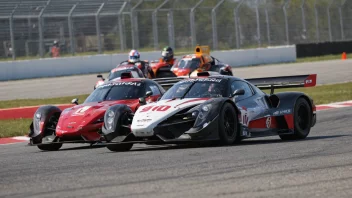In the world of sports, countless factors contribute to an athlete's performance, from rigorous training regimens to the choice of equipment. However, one often overlooked aspect that can significantly impact athletic performance is nutrition timing. Properly timed nutrition can enhance recovery, optimize energy levels, and improve overall performance, making it a crucial component of any athlete's routine. Whether you are an elite athlete or a weekend warrior, understanding how to fuel your body at the right times can lead to better results and a healthier approach to training.
Understanding Nutrition Timing
Nutrition timing refers to the strategic intake of food and supplements in relation to your training schedule. It emphasizes the importance of when you eat rather than just what you eat. The goal is to maximize the benefits of nutrients by consuming them at specific times, particularly around workouts. This can help replenish glycogen stores, promote muscle repair, and enhance overall performance.
Pre-Workout Nutrition
The meal you consume before a workout is critical for setting the stage for optimal performance. Eating the right foods ahead of time can provide the necessary energy and nutrients to fuel your training session. Here are some key aspects to consider:
- Timing: Aim to consume a balanced meal containing carbohydrates, proteins, and fats about 2-3 hours before exercising. This allows your body enough time to digest and metabolize the food.
- Snack Options: If you're short on time, a small snack 30-60 minutes before your workout can be beneficial. Focus on easily digestible carbohydrates, such as a banana or a piece of toast with honey.
- Hydration: Don't forget to hydrate! Dehydration can significantly impair performance, so make sure to drink water before your workout.
During Workout Nutrition
For longer training sessions, especially those exceeding 60 minutes, it may be beneficial to consume nutrients during the workout. This can help sustain energy levels and delay fatigue. Consider the following:
- Carbohydrate Sources: Easily digestible carbohydrates such as sports drinks, gels, or chews can provide a quick source of energy during prolonged exercise.
- Hydration: Continue to drink fluids throughout your workout. Electrolyte drinks can be especially helpful during intense training sessions.
Post-Workout Nutrition
Post-workout nutrition is vital for recovery and muscle repair. After intense physical activity, your body is primed to absorb nutrients, making this the perfect time for refueling:
- Timing: Aim to consume a recovery meal or snack within 30-60 minutes after your workout. This is often referred to as the "anabolic window" where your muscles are most receptive to nutrients.
- Macronutrients: A combination of protein and carbohydrates is ideal. Protein aids in muscle repair and growth, while carbohydrates replenish glycogen stores. A simple recovery meal could be a smoothie with protein powder, banana, and oats.
- Hydration: Rehydrate after your workout to replace fluids lost during exercise. Consider drinking water or a recovery drink that includes electrolytes.
The Science Behind Nutrition Timing
Research suggests that well-timed nutrition can enhance exercise performance and recovery. For example, a study published in the Journal of Applied Physiology found that athletes who consumed protein and carbohydrates post-exercise had improved muscle glycogen restoration compared to those who did not. Additionally, timing your nutrient intake can influence hormonal responses related to muscle growth and fat loss.
Individual Considerations
While the principles of nutrition timing are generally applicable, individual factors such as the type of sport, training intensity, and personal preferences can influence what works best for you. Consider the following:
- Type of Sport: Endurance athletes may require different timing and types of nutrients compared to strength athletes. Tailor your nutrition strategy to fit your specific sport and goals.
- Training Intensity: Higher intensity training may necessitate quicker carbohydrate intake before and during workouts, while lower intensity sessions may not.
- Personal Preference: Everyone's digestive system responds differently, so experiment with various food options and timings to find what works best for your body.
Conclusion
Nutrition timing is a powerful tool that can significantly impact athletic performance and recovery. By strategically planning when to eat before, during, and after workouts, athletes can optimize their energy levels, enhance recovery, and achieve better results. Although it may require some trial and error to find the perfect timing and food choices, the benefits of well-timed nutrition are undeniable. As you continue your athletic journey, consider integrating these principles into your training regimen to improve performance while prioritizing safety and well-being.






